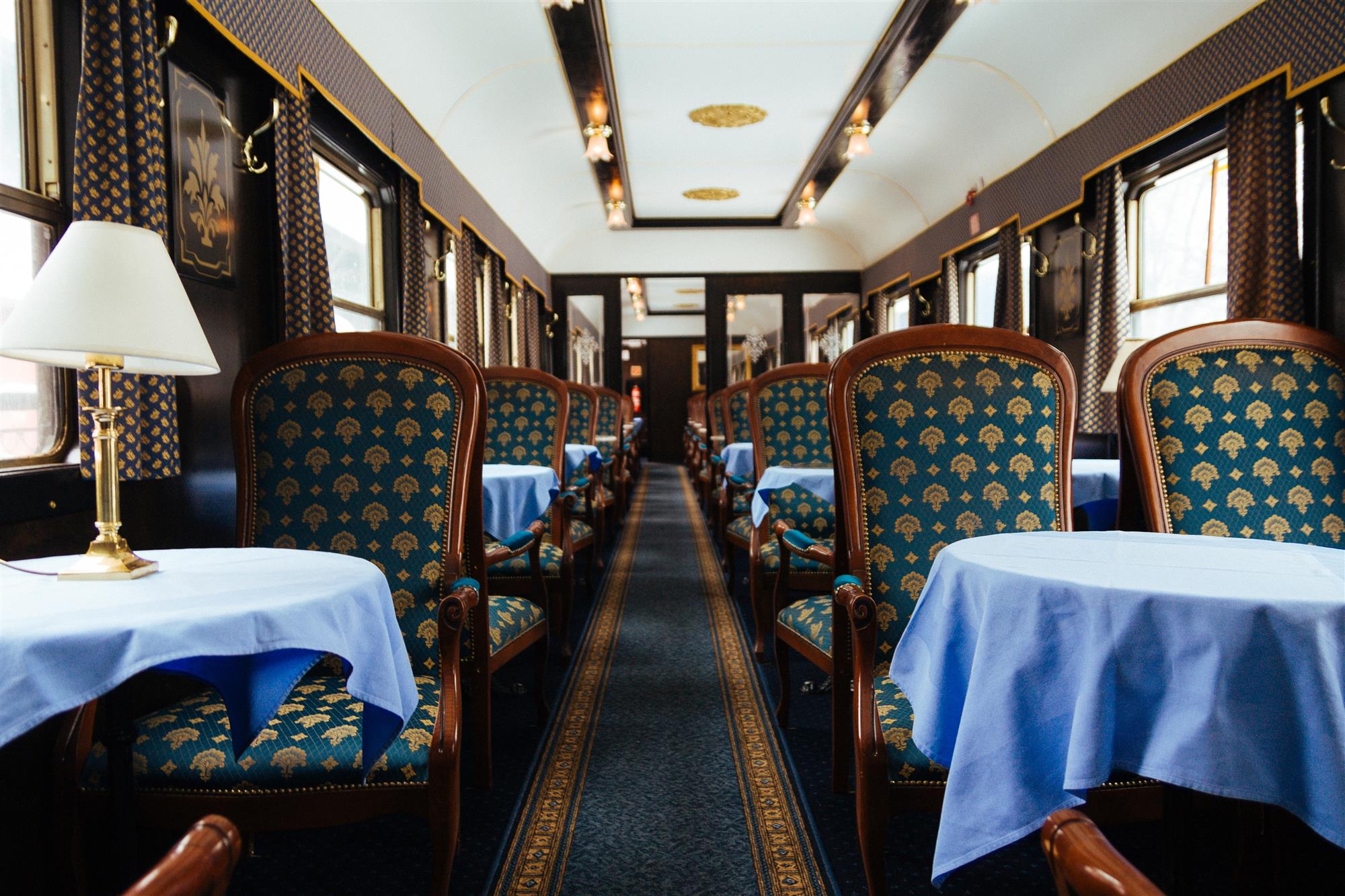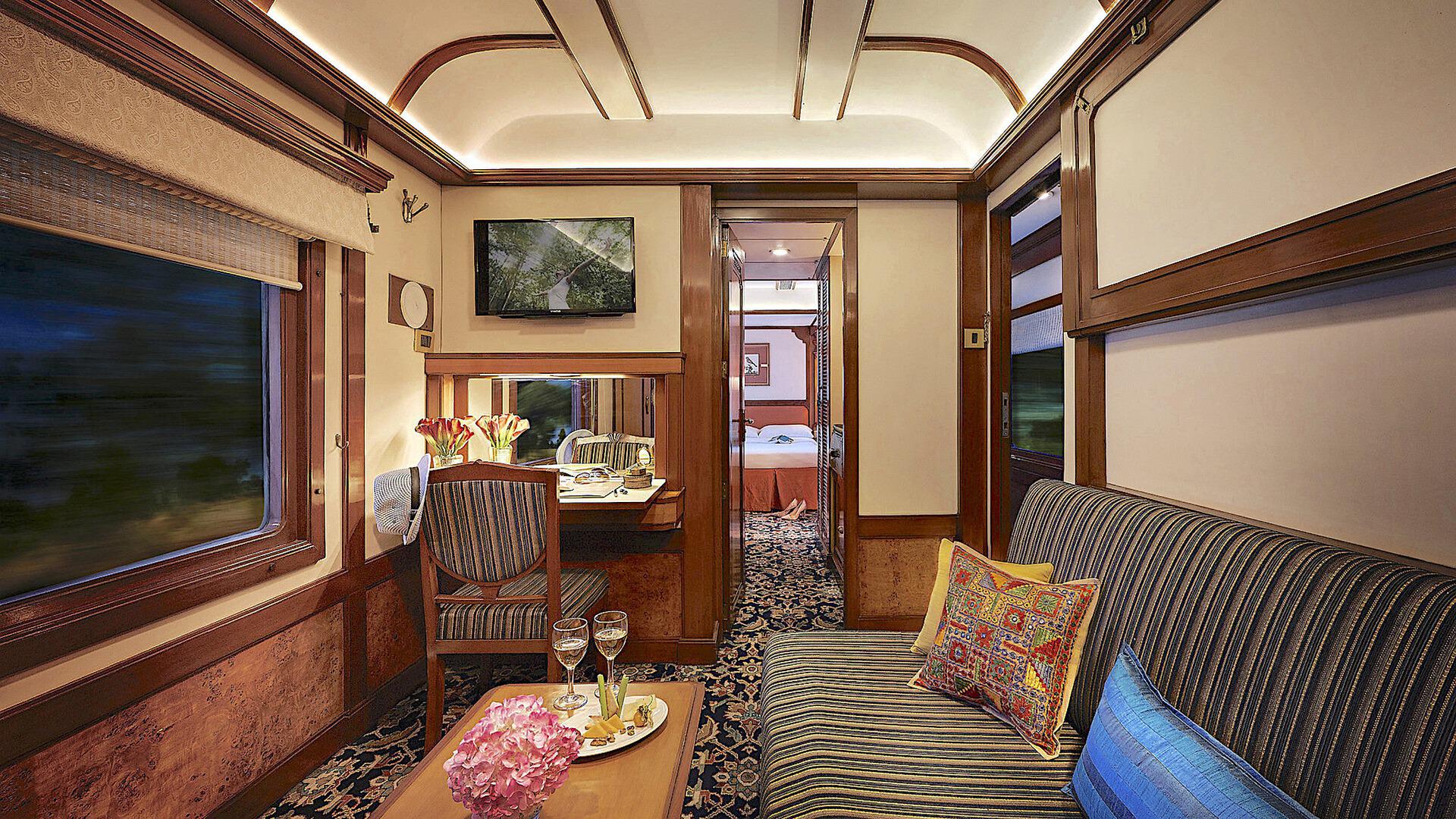 Luxury travel has recovered faster than other global travel segments following COVID, and according to a recent report, the global luxury travel market is expected to grow at an 8.8% CAGR from 2021 to 2028, as demand for unique, highly personalized, and exclusive experiences grows. In line with this trend, luxury train travel is also reviving around the world. The luxury tour operator, Luxury Gold, for example, has reported a 17% increase in demand for tours which include luxury rail journeys.
Luxury travel has recovered faster than other global travel segments following COVID, and according to a recent report, the global luxury travel market is expected to grow at an 8.8% CAGR from 2021 to 2028, as demand for unique, highly personalized, and exclusive experiences grows. In line with this trend, luxury train travel is also reviving around the world. The luxury tour operator, Luxury Gold, for example, has reported a 17% increase in demand for tours which include luxury rail journeys.Luxury trains are introducing people to the joys of slow travel, or the experience of enjoying the journey rather than rushing to the destination because the vacation is the journey itself and a luxury in today's fast-paced world. These journeys enable travelers to visit multiple destinations in a single trip, with hassle-free boarding, comfortable seats (and even beds in most cases), personalized service, and fine dining – amenities that most airlines lack unless traveling first class. Furthermore, trains are more environmentally friendly than planes, emitting roughly half the CO2 that planes do. These factors are driving global demand for luxury trains, helping to resurrect their fortunes following the pandemic.

The historic luxury train Venice Simplon-Orient-Express (VSOE), which reopened in June 2021 after an 18-month hiatus, is nearly sold out on certain routes for 2022. To attract customers post-COVID, the company introduced new routes, as well as one-night trips to key European cities, along with packages that include a stay at one of its hotels. Meanwhile, Rocky Mountaineer, a luxury train operator based in Canada, is seeing bookings at 85% of their pre-COVID levels. Other luxury trains are also making a comeback around the world, buoyed by the revival in demand. Australia's The Ghan and The Indian Pacific recently resumed service, and Japan's Seven Stars Kyushu is set to return in October 2022. Meanwhile, the legendary Paris-Istanbul Orient Express is set to return in 2024, just in time for the Olympic Games in Paris.
While the Pioneer, the first railway carriage with attached dining and sleeping cars introduced in 1864, was the world's first luxury train, Palace on Wheels, India's first luxury train, began operations in 1982. Since then, several other trains, including The Maharajas’ Express, Deccan Odyssey, Royal Rajasthan on Wheels, and the Golden Chariot, have been added to India's tourism portfolio. As an all-inclusive product aimed primarily at international tourists and NRIs, these trains were in high demand in the early 2000s. However, with increased competition and the introduction of low-cost airlines, luxury rail tourism in India began to lose its allure, with most of these trains only seeing occupancy in the range of 35-45% by 2018. Several initiatives to improve the situation had been planned but were put on hold due to the pandemic.
After a COVID-induced hiatus, the Palace on Wheels and the Maharajas’ Express, both of which have won numerous awards and are regarded as among the best luxury trains in the world, are expected to resume operations later this year. Perhaps now is the time to re-evaluate this niche product and take corrective action to capitalize on the opportunity.

The Indian Railway Catering & Tourism Corporation (IRCTC), in collaboration with state tourism boards, is working to reinvent these trains, improving facilities, adding modern amenities such as wi-fi connectivity and smart TVs, and developing new itineraries to provide guests with a better travel experience. International safety certification is also being considered in order to boost traveler confidence in the post-COVID era. While these are the first steps in a long journey to bring these trains back to life. Much more work is required.
To begin with, luxury rail travel is not always at the top of consumers' minds when it comes to domestic vacation planning, and the fact that no effort has been made to attract this segment needs to change. International travel continues to present challenges, and now is an excellent time to attract affluent domestic travelers through targeted marketing and sales initiatives that position these train journeys as an exclusive travel experience comparable to cruises. Short-distance itineraries, similar to VSOE's one-night trips, can be introduced on some routes in India, making the trips more affordable and appealing to a larger target market.
India should also consider operating and managing these trains through a public-private partnership (PPP). The majority of luxury trains in the world are either privately owned and managed by hospitality companies or jointly owned with a government agency. Bringing in specialized private players, including hospitality players, to operate the trains can help improve not only operations and marketing initiatives, but also the traveler experience. However, the government must critically evaluate the PPP model, addressing specific challenges such as high haulage charges and seasonality, in order to make it commercially viable for private players while also balancing risks among all parties involved. Going forward, luxury trains operated in collaboration with hospitality players should also be explored as a development model for remote leisure destinations in India that are difficult to access by road or air, which can benefit both the tourism industry as well as the local economy of the destinations visited during the trip.
About Mandeep S Lamba
Mandeep S. Lamba, President – South Asia, oversees the HVS global hospitality practice for South Asia. He has spent over 30 years in the hospitality industry of which the last 19 have been in CEO positions. Having worked with leading International and domestic Hotel Companies such as IHG, Radisson & ITC Hotels, he also set up joint venture companies with Dawnay Day Group UK and Onyx Hospitality, Thailand to own and operate hotels in India giving him a broader exposure to the hospitality business.
An established industry leader, Mandeep has won several awards and recognitions in India and abroad for his accomplishments and contribution to the hospitality industry. He is a Certified Hospitality Administrator from the American Hotels Association (CHA), a member of the Royal Institute of Chartered Surveyors, UK (MRICS) and a member of the Tourism Council of CII (Northern India). His views are often solicited for television and print media as a spokesperson for the hospitality & tourism sector.
Prior to joining HVS in 2018, Mandeep was the Managing Director, Hotels & Hospitality Group for JLL.
Contact Mandeep at +91 981 1306 161 or [email protected]
An established industry leader, Mandeep has won several awards and recognitions in India and abroad for his accomplishments and contribution to the hospitality industry. He is a Certified Hospitality Administrator from the American Hotels Association (CHA), a member of the Royal Institute of Chartered Surveyors, UK (MRICS) and a member of the Tourism Council of CII (Northern India). His views are often solicited for television and print media as a spokesperson for the hospitality & tourism sector.
Prior to joining HVS in 2018, Mandeep was the Managing Director, Hotels & Hospitality Group for JLL.
Contact Mandeep at +91 981 1306 161 or [email protected]
About Dipti Mohan
Dipti Mohan, Vice President - Research with HVS South Asia, is a seasoned knowledge professional with extensive experience in research-based content creation. She has authored several ‘point of view’ documents such as thought leadership reports, expert opinion articles, white papers, and research reports across industries including hospitality, real estate, infrastructure, cement, and construction. Contact Dipti at [email protected].


Good article particularly for me as a luxury train vacation is on my list in the near future!